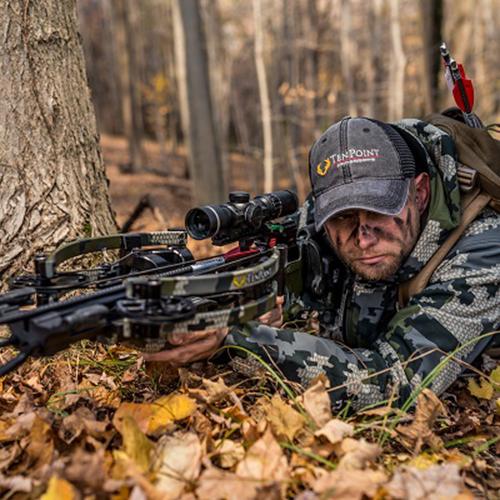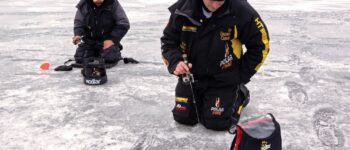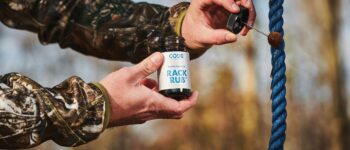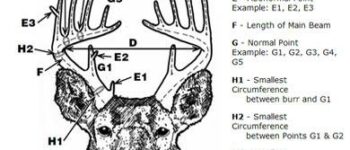As an archery hunter, your main objective in the field is to get as close to your prey as you can, allowing for a closer shot with a higher chance for harvest success. This can seem like a monumental task if you are hunting white-tailed deer, since deer have more scent receptors in their noses than dogs. To get closer to more whitetails in the field, you must take steps to ensure that you are as free as possible of scents not normally found in the area where you hunt. By adopting a routine that reduces or eliminates these foreign odors, you will increase the number of deer you see daily and decrease the distance between you and them.
- Small Food Plot Failures to Avoid When Planting Brassicas
- Are Spikes Shooters? Read This Before Answering | Deer & Deer Hunting
- Hunting Entry and Exit Strategies to Help You Go Undetected
- Top 12 Treestands and Hunting Blinds for 2021 | Deer & Deer Hunting
- Best Bows for 2015: PSE Decree Leads Strong Lineup for Deer Hunters | Deer & Deer Hunting
1. Prepare Your Hunting Clothes
The first step to being as scent-free as possible begins with deodorizing what you will wear while hunting. Many companies make scent-removal laundry detergents that you can use to wash your hunting clothes. Be sure to take steps to remove any residual scented laundry detergent or fabric softener from your washer prior to washing your clothes by pouring some baking soda into the machine and allowing it to run through a cycle without any clothes in it. As for drying, the best action is to allow your clothes to hang-dry outside, but some companies also make dryer sheets that are effective at helping to remove odor or to add a cover scent common to the woods like xe2x80x9cfresh earth.” Store your clothes in sealable plastic bags to store and transport them, as the sealed bags will help to prevent your clothes from becoming contaminated by scent along the way. Use latex gloves when you arrive at camp to handle and organize your clothes so as not to transfer odor from your hands. Undress and leave your worn clothes outside overnight when possible to reduce further contamination.
You are reading: 10 Scent Control Tips to Help You See More Deer
2. Wear Rubber Boots
Rubber hunting boots have a distinct scent advantage over leather boots because the molecules that make up the rubber are tightly packed together, preventing the escape of odor that emanates from inside the boot. Leather, on the other hand, xe2x80x9cbreathesxe2x80x9d or allows air to flow in and out of the walls of the boot, allowing odor to escape. Consider wearing only rubber boots for hunting when scent control is a major factor.

3. Pay Attention to Personal Hygiene
There are many products available today that have been designed specifically for the hunter to maintain good hygiene while remaining scent-free like deodorant, toothpaste, body wash and shampoo. One of the disadvantages that some hunters face is that they may engage in a multiple-day hunt without access to bathing or shower facilities. If you do nothing to remove or cover your natural body odor each day, your bodyxe2x80x99s odor level will continue to increase, rendering the other steps you have taken for scent control as moot.
4. Pay Attention to What You Eat
Read More : The 5 Best Apple Trees for DIY Orchards | Deer & Deer Hunting
With respect to your diet, use common sense and avoid foods that arenxe2x80x99t easily digestible or that cause you to have excessive gas. Avoid foods that are especially odiferous, as the odors they leave behind can remain with you many hours after ingesting. Brush your teeth with a scent-free toothpaste after eating to help reduce any lingering odors. Also watch your caffeine intake while you are on the hunt, as caffeine is a diuretic and can cause you to urinate or defecate more frequently than normal.
5. Avoid Smoking, Chewing and Vaping
It almost goes without saying that smoking, chewing or vaping in the woods creates odors that are not natural and can spook a whitetail that may be downwind from you. Moreover, these activities also leave plenty of residual odors on you for many hours afterward, unless removed.
Avoid these activities altogether when possible. If you must smoke or chew, be sure to carry an air-tight container in which to dispose of your cigarette butts or to spit, thereby reducing the amount of residual odor that remains. Be sure to treat your hands with an unscented hand sanitizer or scent-eliminating product after you are finished.
6. Be Careful with Campfire Smoke
Some hunters will wear their hunting clothes near a campfire to transfer the smell of burnt wood to their clothing, which acts as a cover scent. This may be a successful strategy if the deer you are hunting encounter this type of scent often and associate it with the many other natural scents that are part of their everyday environment. However, if you are hunting in a sparsely populated area where wood burning stoves or campfires are not common, campfire smoke may be an odor that actually serves to put the deer on alert. If you plan on using campfire smoke as a cover scent, take into consideration how common or uncommon the smell of burning wood is to your local hunting area.

7. Stand/Blind Preparation
Read More : Top 7 Hunting Broadheads for 2021 | Deer & Deer Hunting
If you are planning to hunt out of a new stand or blind, be sure to perform your set-up a few weeks prior to hunting. This will allow for your stand or blind to naturally shed some of the strong odors from the materials used for manufacturing and to absorb some of the natural odors of the outdoor environment.
8. Use Scent Reduction Products
Many hunters benefit from using supplemental scent reduction products throughout the hunt as ongoing maintenance to help them be scent-free. For instance, many hunters will use a scent-eliminating spray on their clothing each time they put them on, even after taking additional steps like storing the clothes outside overnight. These sprays can be quite effective at removing scent picked up from your body by clothing worn during the day, especially by hats and gloves.
9. Use Cover Scents
The truth is that while you can take steps to significantly reduce your odor footprint in the woods, no one can become altogether scent-free. To help cover the little odor that remains, you can use any number of cover scent products available on the market today like deer urine or earth-scent. The important factor to consider when choosing which cover scent to use is whether the cover scent that you choose exists naturally in the area where you hunt. The more familiar a deer is with the cover scent that you choose, the less likely it is that that scent will put the deer on alert.
10. When Nature Calls
All hunters must deal with the need to urinate or defecate while in the woods. The by-products of these actions are very smelly, and you must take some care to engage in these activities yet leave little scent behind as a result. As for urine, many hunters will carry a plastic bottle into which they can urinate and collect the urine until leaving the woods. It is best to use a rigid plastic bottle that has a lid which screws down tightly and seals completely. Avoid using thin-walled empty water bottles, as the thin plastic will often make a crackling noise and can alert nearby animals of your location. If you must defecate, plan to walk a few hundred yards away downwind from the core area you are hunting to do your business. Carry a lighter with you and burn any tissue that you used. When finished, use some unscented hand sanitizer or an antibacterial odor control product to clean your hands.
Tips to Keep Hunting Gear Scent Free

Source: https://raysthesteaks.com
Category: Hunting









